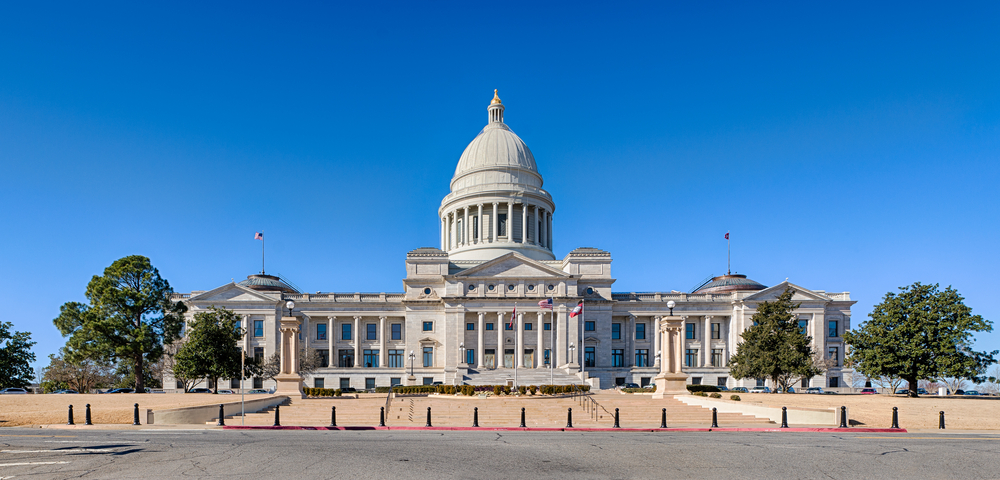Jewish News Syndicate
BY SEAN SAVAGE
“StandWithUs is confident that the desire of the state—to refuse to use taxpayer dollars to enter into contracts with companies that discriminate against Israel—will prevail,” said co-founder and CEO Roz Rothstein.

(February 16, 2021 / JNS) A federal appeals court on Feb. 12 ruled that an Arkansas anti-BDS law was unconstitutional. Several pro-Israel organizations expressed disappointment in the ruling, but don’t see it as hindering the nationwide legislative movement to fight the anti-Israel BDS movement.
In the ruling, a three-judge panel of the 8th U.S. Circuit Court of Appeals reversed a 2019 decision that dismissed a lawsuit by the Arkansas Times that charged that the anti-BDS law violated the First Amendment. The court said that the Arkansas law was too broad and that it could also apply to vendors that support or promote a boycott.
“The Act prohibits the contractor from engaging in boycott activity outside the scope of the contractual relationship ‘on its own time and dime,’ ” the court said in its 2-1 decision. “Such a restriction violates the First Amendment.”
While the Times does not currently engage in or advocate for BDS, the outlet refused to sign a pledge never to boycott Israel after one of its advertisers, the University of Arkansas-Pulaski Technical College, requested it do so in accordance with the state law. In response, the school ceased business with the newspaper.
The 8th Circuit’s ruling now sends the case back to U.S. District Judge Brian Miller, who had previously ruled in 2019 that refusing to purchase items was not protected speech under the First Amendment.
Holly Dickson, executive director of the American Civil Liberties Union of Arkansas, which represented the Arkansas Times in the case, praised the ruling, saying “Arkansas politicians had no business penalizing our clients for refusing to participate in this ideological litmus test. Free speech isn’t a privilege you pay for; it’s a right guaranteed to every Arkansan.”
However, Marc Greendorfer, founder of the Zachor Legal Institute, told JNS that the previous district court ruling—and the dissent in the appeals court—properly interpreted the meaning of the Arkansas law.
“It is telling that the two judges [one an Obama appointee] who ruled against Arkansas’ common sense and narrowly tailored anti-discrimination law had to engage in a tail-chasing analysis of three words in the law to ultimately contort the scope of the law to find vagueness in one of the most narrowly drafted anti-discrimination laws in the nation,” he said.
Dozens of other states have passed similar anti-BDS laws, which have also been challenged in federal courts over First Amendment concerns. Anti-BDS laws in Arizona, Kansas and Texas were initially blocked but later allowed to be enforced after lawmakers narrowed the requirements for the law to only apply to larger contracts.
Arkansas Attorney General Leslie Rutledge’s office said that she was reviewing the appeals court decision and determining the state’s next steps. “The Attorney General is disappointed in the decision, which interferes with Arkansas’s law banning discrimination against Israel, an important American ally,” spokesperson Amanda Priest said in a statement.
‘Easily remedy the flaws’
Pro-Israel and Jewish organizations weighed in on the ruling, expressing optimism that the Arkansas law could be amended to address concerns.
“StandWithUs is confident that the desire of the state of Arkansas—to refuse to use taxpayer dollars to enter into contracts with companies that discriminate against Israel—will ultimately prevail despite the recent appellate court decision,” said Roz Rothstein, co-founder and CEO StandWithUs.
The American Jewish Committee also said it was “disappointed” in the appeals court decision, but noted that the ruling “is not to be read as a blanket condemnation of all such statutes. The court chose to read the statute as prohibiting the state from contracting with people who are participating in a boycott of Israel, even if that participation was wholly unrelated to their state contract.”
As such, AJC said that it does not read the Arkansas BDS law—or other anti-BDS laws in other states—as reaching such unrelated conduct.
Rather, it added, “the statutes constitutionally reach only boycott participation that does, or is likely to, adversely affect the state’s interest in the contract in question.”
AJC said that “Arkansas can easily remedy the flaws in [the] decision, both legislatively and administratively, by limiting the statute and required contractor compliance certificate accordingly.”
Greendorfer said his group looks forward to future proceedings when the core question in the case—whether discriminatory secondary boycotts that are not related to the assertion of underlying constitutional rights of the boycotters are protected by the First Amendment—is addressed.
He explained that “existing Supreme Court precedent, as the District Court and dissent noted, has already answered this question with a definitive ruling that unlike domestic boycotts by those affected by discriminatory government actions”—for example, those by African-Americans in the civil-rights era—“discriminatory secondary boycotts that solely relate to foreign conflicts are not absolute protected speech under the First Amendment.”
Click here for the full article.





